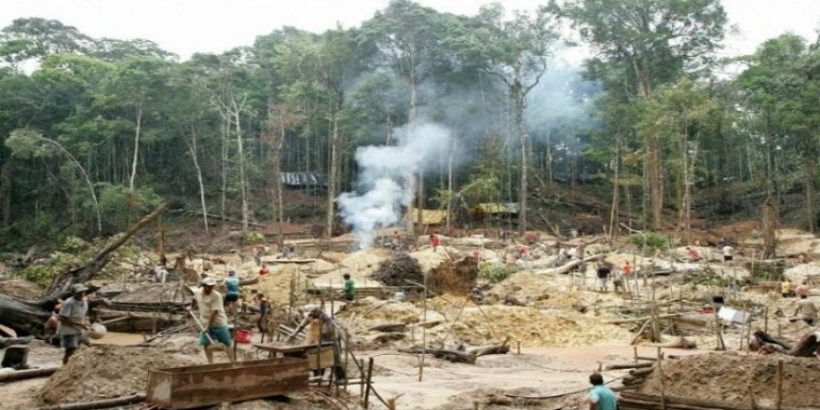Venezuelans have not only learned to cope with poverty and forced migration, unknown to the middle-income oil country that we used to be, but also to deal with the absence of democracy and a government that seeks to stay in power indefinitely.
Although facing a political phenomenon such as Bolivarian populism was already challenging, the complexity rose exponentially when it decided to transform itself into a dictatorship. Although not everything has been wrong, the perplexity of the opposition factions has not made political change possible.
As argued on other occasions, the Venezuelan conflict ceased to be ideological and class-based after the physical disappearance of Hugo Chávez and especially from December 2015 onward, when the ruling party transformed quantitatively into an electoral and social minority.
The so-called “democratic field” became as diverse as the country, more by forced confluence than by strategy, from disenchanted Chavistas to radical opposition.
Everyone, in their way, advocated a transformation in the state of affairs. And each one, from their own logic – which one can share or not, but that is another discussion – did everything within their power to promote it, convinced that it was the best for the nation.
After the 2017 uprising, named after the extent, depth, and consequences of the challenge to power in public space, the country experienced an ebb of political mobilization which re-emerged later on as a consequence of electoral fraud and a person swearing-in as president for 6 years.
Due to several reasons, the person who assumed the leadership of the National Assembly emerged at that time as a visible and recognized leader of the democratic field, as ratified by the broad mobilization that endorsed him in the first months, with his rights and wrongs.
Juan Guaidó’s administration has not been exempted from flaws during his confrontation with an unprecedented dictatorship. Few people can say that they have the will, disposition, and the feel of calling to be in his shoes. And that, along with other virtues, must be recognized.
However, whether we like Juan Guaidó or not, a good part of his leadership is a consequence of the institutional role he has exercised as president of the National Assembly. And that parliamentary board, whether we like it or not, has an expiration date.
Since December 2015, but especially since January 10, 2019, everyone in the democratic field has claimed that Parliament is the only power with original legitimacy that remains among us, elected in a poll that the opposition managed to win despite the obstacles.
For this reason, faced with the short-term choice, we envision two possible choices. First, the majority within the democratic field agree to defend the only institutional organ left, fighting for better conditions and guarantees in the next poll and keeping the democratic majority despite all the trickery.
Faced with the formula of winning elections while a minority, the second option is not to participate, with the full understanding that we are giving up the National Assembly to Madurism along with the institutional ground that gave international support to the decision of forming an interim government to confront the authoritarian regime. Under this scenario, the resistance movement will have to adapt to the new circumstances.
Any decision must be made as informed and responsible citizens, but especially with a democratic vocation, even though we are facing a non-democratic regime. Neither of the choices described will be an express path to the “cessation of usurpation”; quite the contrary, it will demand new commitments and sacrifices.
We are possibly faced with the dilemma of either saving the democratic movement itself or preserving the current leadership. In all honesty, we do not see a way to keep both at these difficult times.
In some private chats, the loophole of free dialogue that remains under the state of alarm due to coronavirus, the thesis of “administrative continuity” begins to emerge, which suggests that Juan Guaidó’s interim presidency remains with all his prerogatives in the case the opposition decides not to show up for elections.
As witnessed with “Operation Gideon”, frustration and exhaustion are a breeding ground for delusions that should be deterred as soon as they arise. It is difficult, but not impossible, for Guaidó to be elected member of a new National Assembly and to be elected president of the Chamber once again. But for that to happen, he would have to overcome the obstacles discussed in this article, win his electoral circuit, surely against the best candidate of Chavismo and the regime’s propaganda, and recompose the internal political pacts of the parties, which remain weakened today.
If the thesis of “administrative continuity” is imposed, out of opportunism or external pressure, Juan Guiadó’s international recognition could be partially preserved, but at the cost of imploding the current national movement that advocates a return to democracy.
Some colleagues are genuinely alarmed by the public criticism against the current managers of the interim government, believing that only void exists beyond Guaidó. I do not share this opinion. Until December 15, 2018, to name a date, the young MP from Voluntad Popular (Popular Will) party was unknown to most Venezuelans. His effervescent leadership as president of the National Assembly was not only possible because of his institutional legitimacy but also wide support of a democratic movement who understood the urgency of the moment and shared a common strategy.
Any artificial subterfuge may keep him in the headlines, but it will be without the images of the thousands walking by his side in February 2019. A legitimate Juan Guaidó will have a wide political ground in future Venezuela. Instead, an imposed lie of “administrative continuity” will have short legs.
Translated by: José Rafael Medina.




